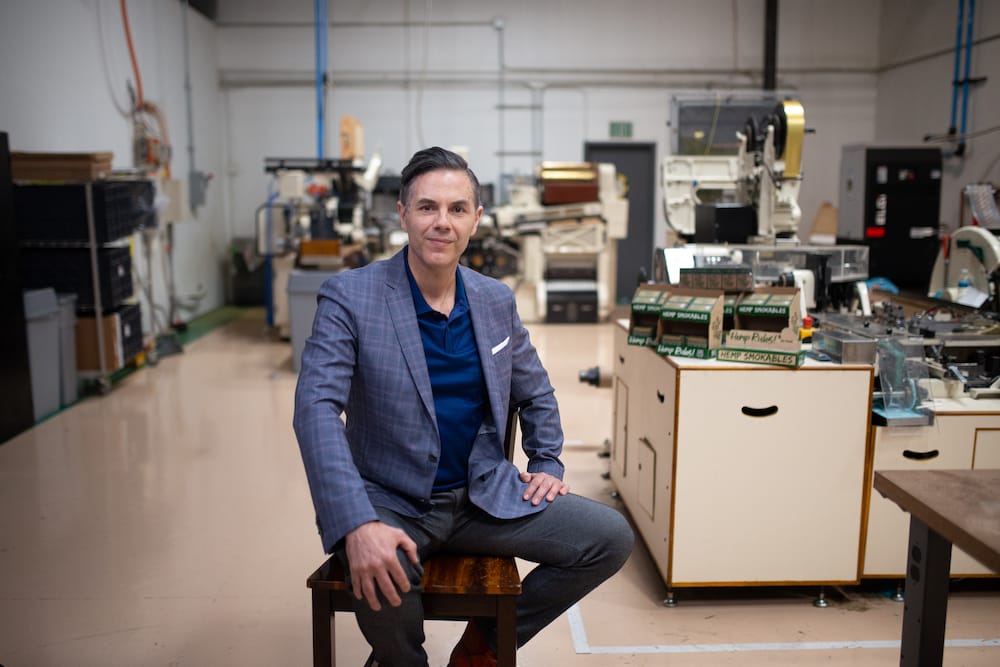By Jorge Olson, Co-Founder & CMO — Hempacco (HPCO)
Many strides have been made toward the use of cannabis and cannabinoid products for medical purposes. Still, there remains one massive, powerful gatekeeper preventing them from being embraced on a wide scale: the FDA.
While there is currently a process by which cannabinoid products can seek FDA approval, it is complex and often confusing to navigate. Until this process is clarified and streamlined through a clearer regulatory framework, consumers will not be able to receive the care they need and deserve.
How current FDA regulations limit cannabinoid products
Under current FDA regulations, there are several restrictions to the marketing and sale of cannabis-derived products. Part of this is due to the complex legal status of cannabis on a federal level, but some of the FDA’s guidelines also create a frustrating obstacle. For instance, the FDA has not yet approved cannabis products to be prescribed as a drug or medicine for any specific disease or condition. However, since there is a cannabinoid as the active ingredient of an FDA-approved drug, cannabinoids cannot be sold as food or nutritional substances.
Currently, there is only one FDA-approved cannabis-derived product, Epidiolex — which includes CBD — and three FDA-approved cannabis-related products, Marinol, Syndros, and Cesamet — which include synthetic delta-9-THC. However, these products are only approved for use in extremely limited circumstances, namely the treatment of severe seizures or nausea associated with chemotherapy.
Why we need clinical trials for cannabinoid products
Opening the door to a clearer regulatory framework for cannabinoid products would allow more cannabis-derived drugs to undergo clinical trials and receive FDA approval. These clinical trials are a pivotal step for any drug to be sold on the market, as it allows researchers to test the drug in a controlled, safe environment, ensure that it has the intended effect, and does not present a substantial risk to the public.
Although there are already several cannabinoid products sold off the market and unapproved by the FDA, cannabis-derived drugs would be able to help more patients if they could go through clinical trials. Although unapproved cannabinoid products are not inherently unsafe, the stamp of FDA approval means they have undergone rigorous testing to ensure their efficacy and safety.
The future of cannabinoid regulation
Thankfully, the FDA has stated that they are willing to commit to investigating any cannabinoid products that want to go through the proper clinical trials to receive FDA approval. Yet, even so, the current system presents a series of hoops that companies must effectively jump through even to reach the trial stage. For example, companies must source their products from an FDA-vetted grower, often the NIDA Drug Supply Program. Although independent growers can apply with the DEA to grow and distribute marijuana for scientific research, this presents yet another obstacle to its acceptance.
For cannabinoid products to have the path toward clinical trials and FDA approval, it must begin with someone in the FDA who understands cannabis and cannabis-derived products. Luckily, the FDA recently hired cannabis policy expert Norman Birenbaum, showing that they have a commitment to moving cannabis policy forward. Under Birenbaum’s leadership, the FDA will hopefully come to a greater understanding of what regulatory framework is needed to make the approval process more accessible.
Cannabinoid products have shown the possibility to provide relief to patients in a myriad of life-changing ways, but until the FDA establishes a clearer regulatory framework for their approval, they will be held back from achieving their full potential. Presently speaking, cannabinoids still have to jump through several arbitrary hoops due to their legal status and stigma. Only under the guidance of a cannabinoid expert like Birenbaum can we overcome these restrictions.
Jorge Olson is the co-founder and CMO of two publicly traded companies, Hempacco, ticker symbol HPCO, and Green Globe International, ticker GGII. Olson was born in Tijuana, Mexico, without running water or electricity, hurdling buckets of water across a block several times per day. Now, Olson is the author of business and inspirational books, as well as an authority on consumer packaged goods, beverages, and wholesale distribution. His partners are super-entrepreneur Sandro Piancone, Cheech and Chong, James Linsey, and Rick Ross.
Throughout the year, our writers feature fresh, in-depth, and relevant information for our audience of 40,000+ healthcare leaders and professionals. As a healthcare business publication, we cover and cherish our relationship with the entire health care industry including administrators, nurses, physicians, physical therapists, pharmacists, and more. We cover a broad spectrum from hospitals to medical offices to outpatient services to eye surgery centers to university settings. We focus on rehabilitation, nursing homes, home care, hospice as well as men’s health, women’s heath, and pediatrics.








